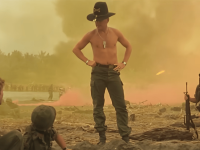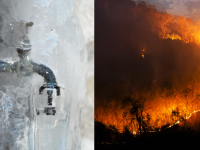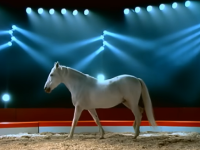Interview. Harvey Keitel honoured at Locarno Film Festival 2016

Mr. Keitel, your career is marked by many complex and never predictable roles, that have always represented a challenge. What drives you through all these challenges?
It’s almost too good a question. It sort of requires for you and me to sit down for a week or two[laughs]. But since we only have minutes, let me reply by saying: it’s a drive to understand more. To understand more about the life I’m living. To become more aware… of everything. And a struggle to stay this way.
From your roles for Martin Scorsese (like the filthy Matthew « Sport » in Taxi Driver or Judas in The Last Tempation of Christ) to the violent Mr. White in Tarantino’sReservoir Dogs, up to the emblematic case of the title role in The Bad Lieutentant for Abel Ferrara, there are many characters marked by profound ambivalences and contradictions that you have been able to portray in their universality. What draws you to these characters?
Well, they were written and directed by people that I have a common bond with. And that bond is to be related to your previous question, it has something to do with that inherent drive to understand more and become more aware. It’s probably the answer to all the questions you could ask me!
There’s fate, luck, chance, but in the end an actor can also be judged by its ability to choose films and directors to work with. You had the intuition to work with filmmakers that were at the beginning of their career, before they became big names of International Cinema: Martin Scorsese, Ridley Scott, Quentin Tarantino. How did these encounters happen?
I met Marty because I was looking for experience as an actor when I was young, and he had advertised for his student movie in the newspaper that actors followed to try to find work. I went to audition for him at NYU. And after a few auditions I got the part! There was a commonality amongst the directors you mentioned, which is first of all great wit and sense of humor, and the fact that there was a mutual recognition between me and them, on some spiritual level.
Many have defined you «the most European of great American actors». And we can just think of your relationship with Italian Cinema, that go from Ettore Scola to Paolo Sorrentino’s most recent film. What made you accept these proposals, and what kind of experiences have they been for you?
These proposals were always dealing with subject matter and issues that concerned me. So whether they’d be Italian or French or Moroccan, or some other countries, there was a common drive to work together. We recognized one another in each other. That’s what brought me to these countries.
I think the first foreign country I worked with was France. I was reading a newspaper in America. I had seen Bertrand Tavernier’s The Clockmaker of St-Paul in New York and I told a friend of mine «there’s a director I’d love to work with». And then I read in an interview of Bertrand: «Harvey Keitel is the kind of actor I’d like to work with». I couldn’t believe it, but that’s in fact what happened! We contacted one another and made Death Watch, with Romy Schneider.
The Festival will screen Smoke by Wayne Wang, a film dear to Locarno, because in 1995 it won the Prix du Public UBS. What do you remember about this film?
I read Paul Auster’s screenplay and… it was large, more than the average number of pages you would find in a screenplay. I finished it and thought to myself: I don’t know what the heck this thing is about, but there’s so much writing, this author must be up to something, I’m going to do it! So I agreed to it and I’m glad I did. I had the pleasure of working with Wayne Wang and meeting Paul Auster. It was a very rich experience.
If you had to choose among the many great films you worked on, is there one for which you have a special affection, maybe because you think it didn’t receive the success it deserved?
Well there might be a few of those… one certainly was Tim Blake Nelson’s The Grey Zone. I wished it would have had more recognition. And James Toback’s Fingers, it did get a certain level of recognition, but not the kind we were hoping for.










